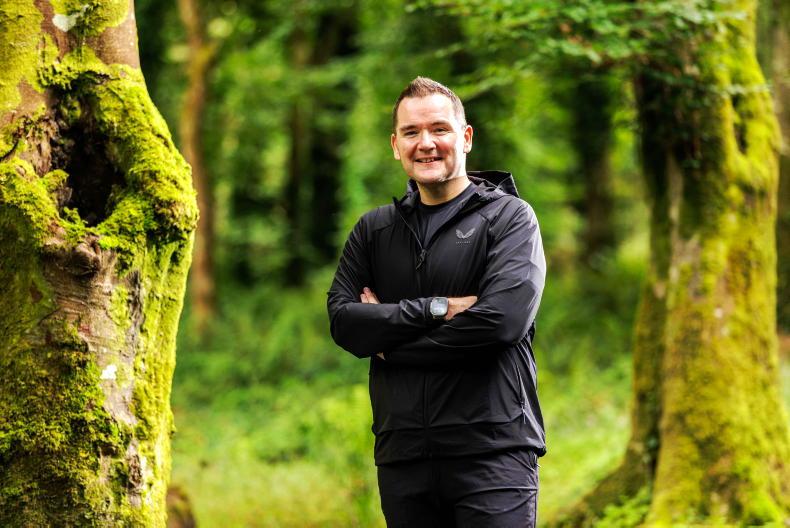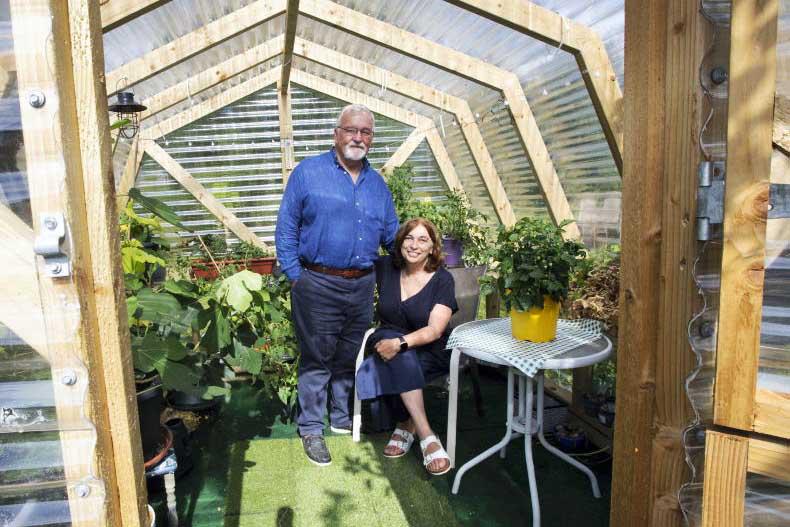Ben (Bernadette) Buckley, an investment relations representative from Enniscorthy, Co Wexford, was diagnosed with gestational diabetes when she was 24 weeks pregnant with her daughter Ava (Ava was born on the 27 April this year). However, Ben was told she could have been at risk earlier on in the pregnancy. She had never heard of gestational diabetes up to that point.
“When I had my first daughter almost 12 years ago, I can’t recall any mention of it or anyone at the antenatal clinic having it, but I met several women who had it this time round.”
She did the glucose intolerance test during week 28 of the pregnancy. This involved fasting and having blood tests taken hourly after she had drank a sugary drink. Results showed that her blood sugar levels were too high.
“I was shocked because I hadn’t been expecting to test positive at all,” she says, “then I felt frightened as I was worried for my baby. But the nurses assured me that they would help me understand how to control the diabetes.”
Ben was then referred to a dietitian who asked about her eating habits.
“She told me the correct foods to eat from then on (to cut out sugar and reduce carbohydrate intake). I had to monitor my blood sugar levels for a week, which meant pricking my finger and testing the blood with a small hand-held device seven times a day.”
Because levels were still too high, she had to go on insulin injections straight away.
“Initially, I had to inject four units into my abdomen before meals. I was assured that this wouldn’t harm the baby in any way,” she says.
“However, the levels got worse and worse as my pregnancy progressed. By the time I was induced at week 39, I was injecting myself with a total of 44 units of insulin, five times each day.
Being diagnosed with gestational diabetes affected her lifestyle more than she expected it to, she says.
“I had to make a lot of changes with my grocery shopping for a start, and stick to a healthy diet as much as possible. As a big food fan this was fairly difficult for me, especially on special occasions, but I did it knowing the health of my baby was at stake –and that was the last thing I wanted to jeopardise.
“I also had to get used to pricking my finger and injecting myself. I was constantly in and out of the diabetes clinic, the doctor’s and the pharmacy, so it seemed to take over my life – something I hadn’t been expecting.”
Ben is a sporty person and is now glad to be back exercising.
“I was always into martial arts – Taekwondo in particular – and I’m back at it now. I also took part in the local tag rugby tournament when Ava was seven-weeks-old.
I feel that it’s important to keep up the physical activity like my doctors advised, and I’ve made a lot of changes to my diet.”
Doctors have told Ben that there is an increased chance she may develop type II diabetes in the next 20 years, and that it is likely she would get
gestational diabetes if she becomes pregnant again.
“I think after the experience I’ve had with Ava, I’m willing to do anything to ensure I don’t get it again,” she says.
“There was a big difference between how I felt energy wise during both pregnancies, so I hope that I will never get diabetes again, both for my own sake and that of any possible children I may have.”
EXPLAINED Gestational diabetes
Sinead Hanley, a dietitian with Diabetes Ireland, explains what gestational diabetes is.
“It’s a type of diabetes that occurs in women that are pregnant. The word gestational means during pregnancy, and diabetes is a condition where there is too much sugar or glucose in the blood. What happens is that the mother’s body is not able to produce enough insulin.”
Insulin is the hormone that enables the body to break down sugar (glucose) to be used as energy. When there isn’t enough produced in the mother’s body, the amount of sugar in the blood rises. This can lead to health problems for mother and baby.
“Gestational diabetes usually begins in the second half of the pregnancy and goes away after the baby is born,” she says.
“It is tested for during weeks 24 to 28, particularly if the pregnant woman is considered to be at risk, i.e. has a high BMI, a close family history of diabetes and has had a big baby on a previous pregnancy. Polycystic ovary syndrome is also a risk factor.”
“The main risk with gestational diabetes is that, if too much sugar crosses the placenta, it leads to a bigger baby. That in itself can mean a greater risk of caesarean section at delivery.”
If gestational diabetes isn’t controlled properly it can also lead to birth defects, but these are quite rare, she says.
ON THE INCREASE
12% of Irish women now develop gestational diabetes, according to the Atlantic DIP study, and it is on the increase for two reasons, she believes.
“The first is because women are leaving it until they’re older to have babies, and the second is because women are more overweight or are entering pregnancy when they are overweight,” she says.
Women are usually very willing to do what’s necessary to control their blood sugars when they are pregnant, she says.
“When you are pregnant it’s not just about your own health, it’s about the health of the baby. So people are very willing to heed medical advice.”
Treatment means cutting out sugary foods and reducing carbohydrate intake as these turn to sugars also.
“The woman could be asked to test her blood sugars up to seven times a day, so you’re looking at quite tight control – blood testing before meals and two hours after and again before bedtime.”
In relation to food, it’s an issue about carbohydrate choice, she says.
“It’s a lot stricter than with regular type II diabetes. It’s all about balance and getting the carbohydrate intake right, but you can’t cut it back too much because the baby might be at risk of no weight gain.”
If the mother-to-be can’t control her blood sugar levels with correct food intake and exercise, the next step is insulin injections.
“A lot of women will need to take insulin if they can’t manage by cutting back carbohydrates. At present, the numbers of women with gestational diabetes is growing and growing – so much so that they have to be seen in groups now (by diabetic clinic nurses and dietitians) rather than individually.”
If you get gestational diabetes you are 60% more likely to get type II diabetes later in life, according to the Diabetes Ireland spokesperson.
“The best advice really is to eat healthily all the time. In pregnancy there is that whole ‘eating for two’ thing, but you don’t actually need to eat for two until the third trimester.
“It’s really about sticking with the healthy food guidelines that are there for everyone, being as active as possible, trying to keep a healthy weight before pregnancy and not gaining too much weight during your pregnancy.”








SHARING OPTIONS